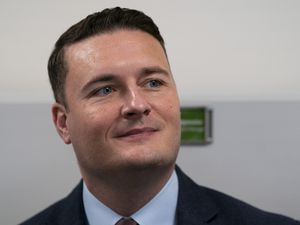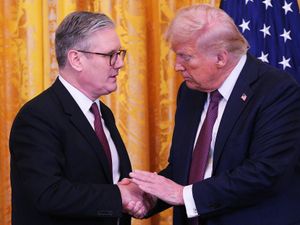Sajid Javid refuses to rule out delaying Brexit beyond end of October
Meanwhile, Andrea Leadsom said she would not seek to renegotiate Theresa May’s deal.
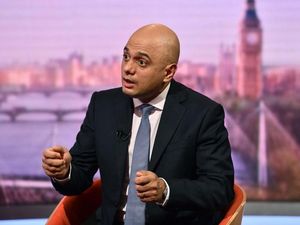
Tory leadership hopeful Sajid Javid has refused to rule out extending Britain’s departure from the European Union beyond the end of October.
The Home Secretary, who is among 13 candidates vying to replace Theresa May, said he did not want to delay Brexit but would not ignore Parliament if it forced his hand.
It follows reports that Environment Secretary Michael Gove told colleagues he is prepared to delay Brexit until the end of next year rather than leave without a deal on October 31.
“I’m clear that my plan would be to leave on October 31. I want to leave with a deal but if I have to choose between no deal and no Brexit I would pick no deal,” Mr Javid told BBC One’s The Andrew Marr Show.
Pressed on the matter, he said: “That’s not something I would do, but we are a parliamentary democracy and what we’ve seen in the last few months is Parliament has taken on some extraordinary powers to initiate its own legislation so if it’s statute, if it’s the law, I would not break the law if I was prime minister, of course I would observe the law.”
The Cabinet minister also said he had been working with the Border Force to find an alternative arrangement to the controversial Irish backstop to prevent a hard border between Northern Ireland and the Republic.
He explained: “In my department at the moment I’ve got Border Force and we’ve done work for months on what an alternative to that arrangement could look like and what’s missing is that good will.
“What I would do is make a grand gesture to Ireland that we would cover all their costs – the upfront costs, the running costs – of a new digitised border.
“I think it could be done in a couple of years but I think we could cover their costs.”
Mr Javid’s comments came as Andrea Leadsom, whose resignation as Commons leader triggered the PM’s departure, said she would not seek to renegotiate Mrs May’s deal and vowed to leave the EU by the end of October in a “managed exit”.
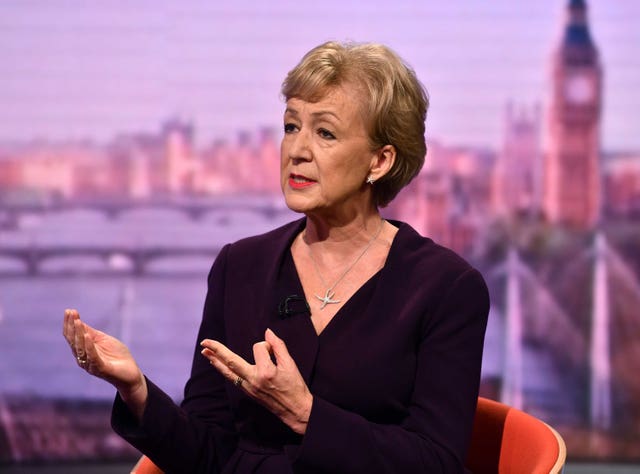
She said she would not take Britain out of the EU without a deal, instead insisting she would follow her “three-step plan for a managed exit”.
“I think it’s based on the premise that, number one, we have to leave the EU at the end of October, and, number two, the Withdrawal Agreement Bill is dead – the EU won’t reopen the Withdrawal Agreement and the UK Parliament won’t vote for it,” she told Marr.
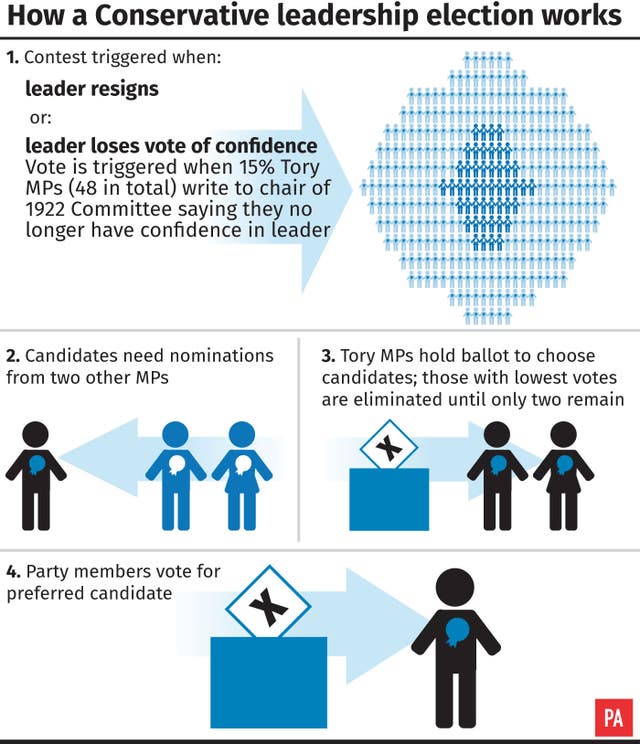
Mrs Leadsom also ruled out holding a general election this year and said she would not support a second referendum or an alliance with the Brexit Party.
Meanwhile, Justice Secretary David Gauke said he would support International Development Secretary Rory Stewart in the race to replace Mrs May, saying he had “real strengths” in being an unconventional candidate.
Mr Gauke also said he would not be able to serve in a cabinet which pursued leaving without a deal as its “objective”.
But he said: “I don’t think you can completely take it off the table because the European Union might refuse any kind of extension and we might find ourselves in that situation.
“So I accept that we should prepare for it but if it is an objective in saying ‘no-deal is the right answer’ I wouldn’t support that policy, I wouldn’t be able to serve in a cabinet that pursued that policy.”
Mr Stewart also won support from Tory former chancellor Ken Clarke, while former Cabinet minister Nicky Morgan said she would back Mr Gove.
Former universities minister Sam Gyimah became the latest Tory MP to announce his intention to replace Mrs May, saying he would broaden the race.
Brexit Party MEP Ann Widdecombe said the Tories, her former party, had “gone mad” in fielding so many candidates.
Elsewhere, Health Secretary Matt Hancock wrote to MPs setting out his “Brexit Delivery Plan”, saying a no-deal exit was “not an available choice” to the next PM.
He said he would seek a time limit to the Irish backstop, set up an Irish Border Council, and propose a “Comprehensive Free Trade Agreement” as the basis of the UK’s long-term relationship with the EU.

